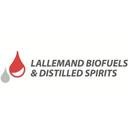The U.S. Department of Energy Bioenergy Technologies Office (BETO) announced up to $23 million in funding to support research and development (R&D) of domestic chemicals and fuels from biomass and waste resources.
The Department of Energy’s Pacific Northwest National Laboratory is teaming up with Bridgestone to scale up a chemical process that converts ethanol into butadiene—synthetic rubber’s most important ingredient.
The U.S. DOE has announced its intent to issue funding to support high-impact research and development (R&D) projects in two priority areas: sustainable propane and renewable chemicals and algal system cultivation and preprocessing.
Gevo Inc. and LG Chem Ltd. are extending their joint development agreement. The agreement extension enables LG Chem to assess existing assets for deploying Gevo’s Ethanol-to-Olefins (ETO) technology.
North Sea Port and Ghent-based Terra Mater BV are collaborating with the Brazilian group Petrom to produce SAF and basic chemicals. Terra Mater will utilize its proprietary 2X Alcohol-to-Jet technology, developed in Ghent, for this venture.
Bridgestone Americas on Oct. 22 announced it received a grant from the DOE’s Industrial Efficiency and Decarbonization Office to support the development of a pilot plant that will advance an innovative approach to obtaining butadiene from ethanol.
DOE Agile BioFoundry and ABPDU partner with industrial microbes to successfully scale up biobased process
U.S. DOE researchers have scaled up a process that converts ethanol into a valuable precursor for consumer products, such as paints, coatings, and diapers. The researchers worked with industry partner Industrial Microbes to develop the process.
Technip Energies and Enerkem Inc. have signed a collaboration agreement, solidifying their commitment to accelerate the deployment of Enerkem’s technology to convert non-recyclable waste and residues into sustainable fuels and chemical products.
LanzaTech Global Inc. has been awarded $3 million by the U.S. Department of Energy’s Office of Fossil Energy and Carbon Management, as part of a broader $29 million investment program to advance its carbon management priorities.
CapCO2 Solutions has signed an MOU with Methylennium Energy. The two companies can capture waste CO2 produced at ethanol plants and use it to make green methanol. An initial project is expected to be operational in 2025.
Sens. Sherrod Brown, D-Ohio, and Pete Ricketts, R-Neb., in August introduced the Renewable Chemicals Act, a bill that aims to create a tax credit to support the production of biobased chemicals.
ADM and South Korea-based LG Chem on July 12 announced they will not move forward with the development of previously announced joint venture projects to produce lactic acid and polylactic acid (PLA), citing skyrocketing construction costs.
The Chemical Catalysis for Bioenergy Consortium, a consortium of the U.S. DOE’s Bioenergy Technologies Office, has launched an effort that aims to gather community input on the development of new biomass processing facilities.
New Energy Blue launches New Energy Chemicals to produce biobased ethylene for carbon-zero SAF, renewable plastics
New Energy Blue on March 18 announced the formation of New Energy Chemicals. In phase one, the biochemical subsidiary will produce biobased ethylene for use in Dow’s renewable plastics. In phase two, the subsidiary will expand to SAF production.
USDA on March 8 celebrated the second annual National Biobased Products Day, a celebration to raise public awareness of biobased products, their benefits and their contributions to the U.S. economy and rural communities.
Lallemand Biofuels & Distilled Spirits on Jan. 23 announced a partnership with Braskem to jointly develop renewable chemicals. The two companies will first explore products for the solvents segment.
Sens. Amy Klobuchar, D-Minn., and Jerry Moran, R-Kan., on Oct. 26 announced the introduction of a bill that aims to update the USDA’s Biorefinery, Renewable Chemical and Biobased Products Assistance loan guarantee program.
DOE awards $16.7M to advance production of affordable biofuels, biochemicals
The U.S. Department of Energy Bioenergy Technologies Office has announced $16.7 million in funding for five projects to advance the production of affordable biofuels and biochemicals that will significantly reduce greenhouse gas (GHG) emissions.
Solugen and ADM on Oct. 30 announced a strategic partnership to scale a range of innovative, plant-based specialty chemicals and biobased building block molecules in a new manufacturing facility in Marshall, Minnesota.
Sumitomo Chemical has begun construction of a pilot facility to establish a process for producing propylene directly from ethanol, which is attracting attention as a sustainable chemical raw material.
Fortum and Taaleri Kiertotalous Ky recently signed an agreement with Chempolis Oy to invest in the company. The deal is part of a restructuring of Chempolis Oy's ownership and financing, in order to strengthen the balance sheet and operations.
Advertisement





















